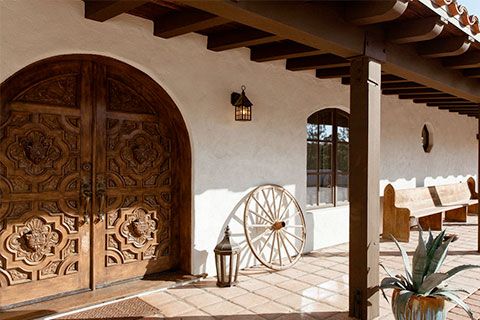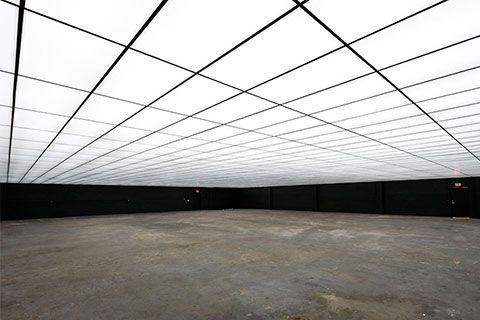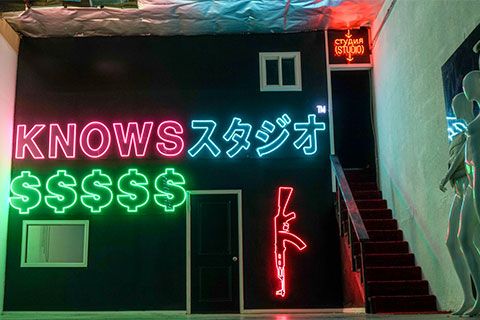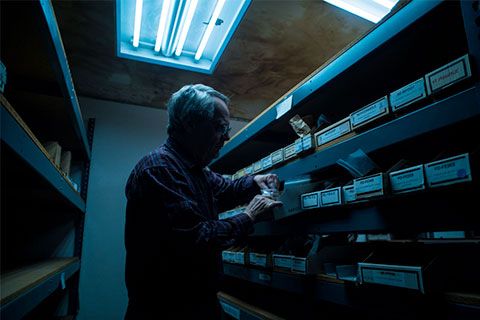Collaborating Your Way To Success at Film School
You've taken the plunge and you've just started your new semester at film school, ready to rock your career in the film industry and make it big in Hollywood!
While school is great to set you up with a solid base in terms of skills and provide a platform to start developing your professional network, simply attending class and putting in the minimum for your film projects isn't going to cut it when it comes to developing real world value.
Finding the right film location rentals ideal for students, working in tandem with the entire pre-production, production, and post production teams, figuring out the distribution, all these are attributes to be mindful of while working on your student film.

At Giggster, we had the opportunity to chat with Manahar Kumar, an MFA Film & TV student at Savannah College of Art & Design in Atlanta. Manahar has been at SCAD for the last 2 years now and he's won numerous awards including a Student Emmy Award for his short film Kya Dekh Raha Hai? (What Are You Looking At?) in 2018.
Rent a location for your next film or photo shoot project on Giggster – A better way to book locations.






According to Manahar, collaborations are key to succeeding at film school.
Collaborate and Work In Your Classmates' Shoots
Collaborations are truly key to developing your creativity. By participating in collaborations, you learn how others function creatively and explore your own creativity further. Working in your mates' projects and shoots is the best way to gain as much exposure as possible to the art and the world of filming. Manahar, during his previous 2 years at SCAD, had the opportunity to work on two thesis films as an actor.

Moreover, by collaborating with a wide variety of people you're likely to find one or two partnerships that work very well. Many successful filmmakers always have the same collaborations, and once you find your ideal artistic partner, it becomes much easier to get those creative juices flowing. He says this is the best way to explore other roles and try out different positions in a production to truly understand what you like.
Almost every student claims they want to write and direct at the beginning of the program, but most people end up changing their mind later on after having tried different roles and exploring around a lot more – whether it's editing, sound, VFX... whatnot! You truly understand what you like (and what you don't) after trying out various things.
How do you get these experiences and opportunities, however? That brings us to our second point.
Learn How To Network and Find Collaborators
This too, is a skill that can be learnt.
There are people who are really quiet and don't talk, but once you get through to them you'll find that they're extremely creative and innovative. On the other hand, you sometimes find people who are extremely full of life, speak to everyone and are very good at making connections, but when you get down to working with them you find that may not be very artistic or creative.
At the same time, not everyone at film school is crystal clear on what they want to do with their time. A lot are confused about the direction they want to head in. That's not necessarily a bad thing. For Manahar, it largely comes down to observation. With time and experience, you can become good at identifying who will be good at what, even if they don't know it themselves.

Those people who can talk but aren't really up your alley, creativity-wise? They can prove to be incredible marketers for your project. With their experience interacting with so many other people every day, they can make very educated decisions on how best to target your project.
Manahar developed these observation skills by virtue of being an actor. A lot of acting is observing and learning from people and their behavior, and this observation can be used in other aspects of life as well.
Begin by carefully observing and paying attention to the people in your classes, your professors, friends, acquaintances, and particularly in a city like Los Angeles, even the person sharing your Uber Pool could be your next lead actor or actress. You can and should attend networking events. Speak to people you meet, be interested in their quirks and habits, open up collaboration opportunities, and make a promise to work together.
But how do you begin conversations with people around you?
You can start by just going out and speaking to whoever you meet, on your campus or in your classes. However, simply speaking about the weather isn't enough – you should aim to build a real connection and learn as much as you can about that person during your conversations with them.
I can personally highly recommend the book How To Win Friends and Influence People by Dale Carnegie.
The book talks about how you can learn more about people, and make real connections with those you speak to. In a nutshell, the most relevant learning from the book is as follows: Show a real interest in learning about the other person. Listen attentively and try and understand what they're trying to say. Ask questions about themselves, their background, their thoughts, their values – learn as much as you can about their personality.
Utilize Your Professors and Their Connections
What we don't realize when we're in the day-to-day rut of school is that we assume that it's a bubble that is very restricted. That is simply not true in most cases.
Going along with the theme of observation from the previous point, it would serve you really well to also observe and understand your professors. Most film school professors come with years of actual industry experience, and the connections that come along with it. It really helps to develop personal relationships with your professors, at least the ones that seem open to it (there are many professors who don't want to be involved and that's fine too).
You never know, the connections you make with your professors might lead to a mentor relationship that will continue to inspire you for years to come. Maybe 0nce they understand your passion, they could introduce you to their connections ... and this road could take you places.
To conclude, collaborations are key to succeeding at film school, and building networking skills is key to finding successful collaborators. This strategy is what helps Manahar make the most of his time at SCAD, and how he won a student Emmy for one of his short films as well.
There are ways and means you can use to become better at networking and once you master that skill, you can open up a whole new world of possibilities for yourself. On the other side, there is tons to know about as well which is why we've complied this guide for student filmmakers to answer the many questions they may have before getting into the process of putting out a film. And if you're looking out for shoot locations for students, look no further that our collection of student friendly film location rentals.
Manahar is currently working on his thesis film, the Facebook page of which can be found here.

